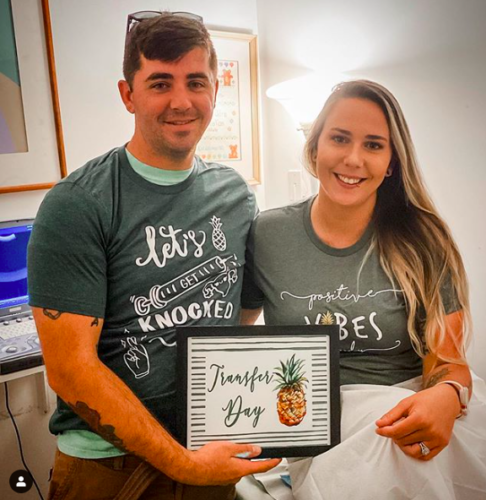Surrogacy is on the rise, and hopeful parents are looking for the right match to start their family. We talk to Andrea Hoshmand McAfee from Hawaii Surrogacy to learn more about the steps to become a surrogate and what to consider before starting the process.

How common is surrogacy and how has it grown to date?
Surrogacy is becoming more common. In the past decade, the number of gestational surrogacy cases worldwide has risen by double-digits. There are several hundred families that have worked with surrogates here in Hawaii. People are becoming more aware of their options as they build their families. We are seeing more celebrities talk about having a surrogate, and that’s helping others be open about their struggles with infertility. It’s important to know that surrogacy is an option for local families too, not just the rich and famous. Here in Hawaii, we have a significant need for surrogates, with many Intended Parents waiting six months or more for a surrogate match.
What do you say to prospective surrogates about what to expect from this journey?
You’re helping make dreams come true and providing a precious gift. This will be one of the most empowering decisions you can ever make. The Intended Parents are so grateful to the surrogates that give them hope. As an agency, our job is to guide women through this complex process. We have been supporting surrogates across Hawaii for over a decade and have local coordinators that are by your side the entire journey.
What are the key qualities and/or ideal conditions for a potential surrogate?
We are looking for women who love being pregnant and want to help others realize their dream of a family. Surrogates should be between the ages of 21-38, have uncomplicated pregnancies and deliveries, lead a healthy lifestyle, and have the support of family and friends.
What are the questions I should be asking myself if I’m considering surrogacy?
There are several things to consider before becoming a surrogate. The surrogacy process occurs over 12 to 15 months, so you need to discuss this long-term commitment with your family. You should have a good support system with healthy relationships. You must be willing to travel to Oahu for some of the medical appointments (all travel costs are covered) and have reliable transportation. You need to be okay with taking medications by injection (don’t worry, the nurses will show you what to do).
How long does it usually take before getting matched to potential parents? What is the methodology behind matching parents and surrogates?
If you complete our screening process, we can get you matched immediately with Intended Parents. Our waitlist is that long. To find a good match, we look at personalities, family values, and communication styles. We want to be sure that you have similar expectations of the process. We also want to make sure everyone is on the same page about important issues like how many tries to get pregnant, carrying multiples, selective reduction, birth defects, etc. We start with sharing profiles between the parties, followed by a meeting facilitated by one of our staff members. There’s no pressure to match. Everyone can take their time to get to know one another before we proceed further.
What happens if I sign up to be a surrogate and I am unable to become pregnant?
Surrogates are thoroughly evaluated by the clinic. We not only look at your pregnancy history but also look at how your body responds to the medications that you take during the surrogacy cycle to prepare your body to receive the embryo. Rarely, a woman may not respond well to those medications, so they would not be a good candidate to continue with the process. However, it isn’t uncommon for it to take more than one transfer to become pregnant.
Do surrogates ever have a hard time parting with the baby?
This is something that we talk about a lot. We often joke that surrogacy is “ultimate babysitting.” As a surrogate, you are an essential part of a team that’s helping this family. You love the parents you’re working with and it’s unimaginable to even consider keeping their child. As a surrogate, you have no genetic relationship with the baby. It’s their child that you’re honored to care for over nine months. Very early on in the process, when you’re undergoing psychological screening, we talk with candidates about healthy boundaries, connections and bonding.
How involved are surrogates beyond birth and what are their rights?
Many of our surrogates are “honorary Aunties.” Nearly everyone keeps in touch after the birth because whole families become friends. You exchange pictures and Christmas cards. It’s a healthy relationship because you went through something so special together. However, the baby belongs to their parents. Those parents have sole parental rights. Their names are on the birth certificate.
Apart from the financial compensation, how do surrogates benefit from the process? Can you share an example?
One of our surrogates said it best, “I feel like I’ve helped put a little more love into the world, and that’s something I can always look back on and feel good about.” It’s not every day that someone becomes a surrogate. You join this incredible sisterhood of women that have given the ultimate gift – life! Most of the parents we work with have suffered so much heartbreak and have been trying for years to have a child. Through your selfless actions as a surrogate, you made that dream come true. It feels incredible to do something life-changing and positive.






